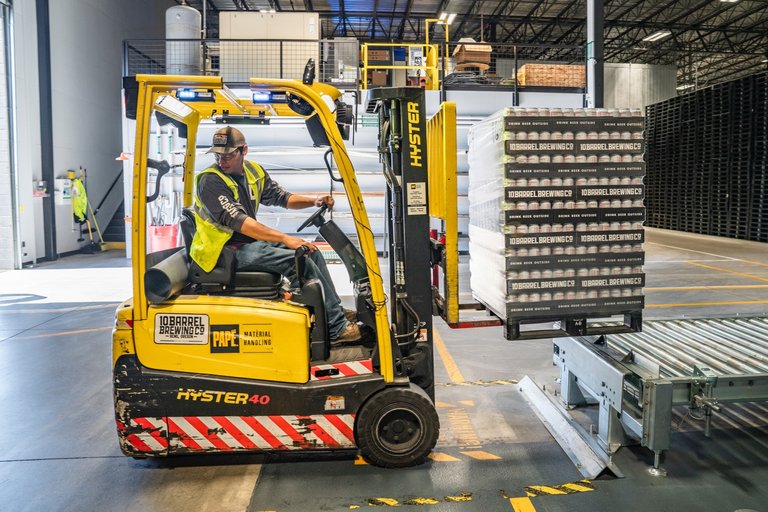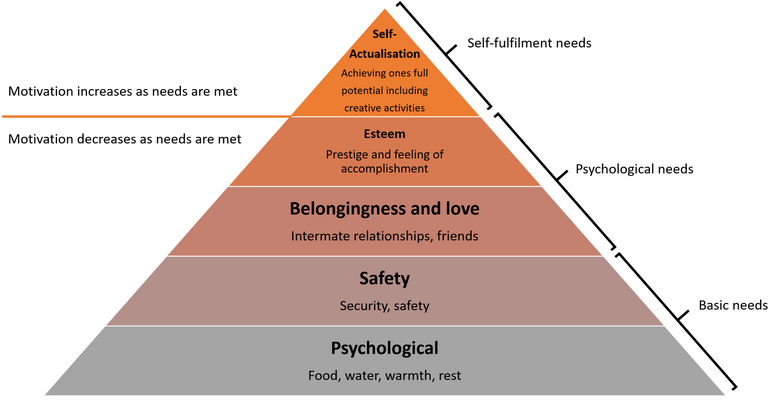
Many years ago, when I was young and highly ambitious, the only job I could find was sweeping the floor of a plastics factory. It was hard and grim work. However, I was so determined not to spend the rest of my life doing this job. It was a stepping-stone. I was ambitious and as such, I worked hard and put all my effort into the job. One day, soon after I started, the foreman came and told me off. He said I was working too hard and putting the other staff to shame. He told me to chill out for a while and go and hide in my car and come back later. If I finished sweeping the floor, there would just be more work to do afterwards.
For anyone who has run a business or a team (or who has teenage kids), you will know that sometimes there is a lack of motivation that is blocking achieving full effectiveness. In the workplace, this may present itself as someone who is a slacker. They know how to do the job, they just cannot be bothered. Their behaviour is driven by a lack of motivation.
So how do we motivate people? Well we could offer more money, right? Will that always work?
In a 1943 paper called "A Theory of Human Motivation", Abraham Maslow introduced a theory that is now known as "Maslow's Hierarchy of Needs". The concept is that the base needs in the hierarchy have to be satisfied before individuals develop needs higher in the hierarchy. As our lower needs are fulfilled, we raise through the hierarchy trying to satisfy our higher needs.

At the bottom of the hierarchy are our basic needs. We need food to survive and we need a roof over our heads. If you do not have these basic needs satisfied then this is where your focus will be. Once we have food and shelter, then we want security. In the workplace, this transforms to job security because if we are at risk of losing our jobs, then we can find that a big motivator to show our value.
These are our basic needs and only once they are satisfied, we can go onto the psychological needs such as our need to feel that we belonging to a group or team, or that we have love in our lives. For many of us, our Hive blogging platform may satisfy that need as here we belong and find community!
Once you feel part of the team, then you will want to feel that you have accomplished something within that team. We start looking for status and recognition.
Can the workplace always satisfy these needs? Well, let's consider the foreman in the factory. He had satisfied his basic level needs: food, shelter and security. He felt secure in his job as he was used to no one holding him to account for the work he was doing. He knew he could get away with not putting his full effort into his work.
So if these two levels are satisfied, then what about his social belongingness? In reality, this depends so much on the individual and factors such as if they have an active social life outside work then they may not care too much about feeling they belong at work. If that need is satisfied elsewhere then you are not going to easily compete. I expect that was the case for the foreman and I doubt he took great joy in feeling that he belonged to the plastics factory team. However, for other people, they may well be looking to satisfy this need from their work environment.
The result is, the foreman wasn't motivated at work because his basics needs were already satisfied and his social needs were satisfied outside work. His needs could not be satisfied at work. So how do you motivate him?
Well, you could disrupt his security by making him feel his job is threatened. That would automatically push him back down the hierarchy and he would pick up his pace. That would not be my choice though. I would prefer to entice him by working out which needs higher in the hierarchy could potentially be satisfied so that I could motivate him by those. Perhaps giving him the opportunity to move to a position of higher status. (If only he sorted out those slackers who were taking ages to sweep the factory floor!)
The top-level of the hierarchy is about self-actualisation and fulfilment. The best thing about needs at this level is that once we achieve them, then it motivates us to do even more. So in most organisations, this is where you want to try to get your team to operate.
Of course, if something drastic happens in their life: divorce, mortgage payment defaulting etc. Suddenly they will drop down through the hierarchy again and their needs change.
So if you want to motivate your team, you must understand their needs.
Like all theories - it is just a theory. I do believe it is useful and I do consider the needs of my team when considering how to increase their motivation. However, perhaps the higher levels are a bit blurred in the modern world rather than being a pure hierarchy. Perhaps also the whole model is dated? What do you think? I mean surely, WiFi access must be the most basic need!
Improved Maslow.
Posted Using LeoFinance Beta
Spot on. Love it!
Thanks for dropping a comment.